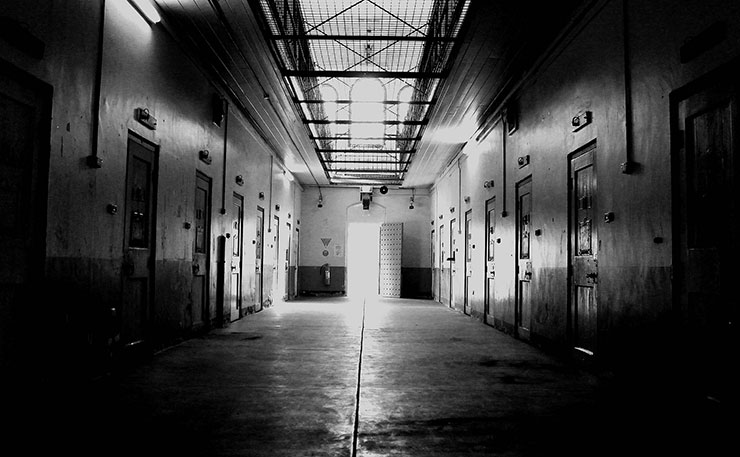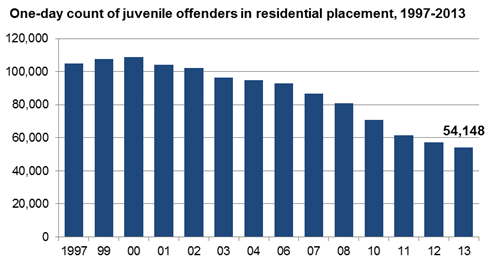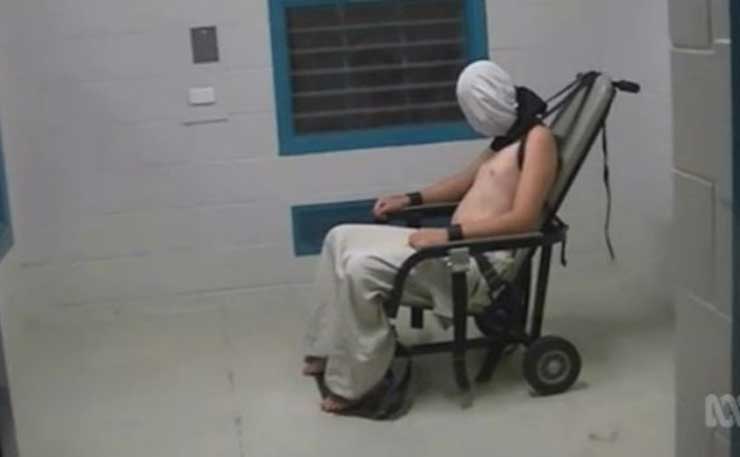Those who have looked closely at the issue in the US have a warning for Australia. Max Chalmers reports.
When Vincent Schiraldi took charge of Washington D.C.’s juvenile corrections program he saw up close a system in which abuse was not merely enabled but embedded.
Schiraldi is a Senior Research Fellow at Harvard’s Kennedy School, turning to academia after stints as the Commissioner of the New York City Department of Probation and a senior advisor in the NY Mayor’s Office of Criminal Justice.
Fresh out of the world of not-for-profit work, his apprehensions were quickly confirmed after taking the job in D.C.
“What I found was nothing short of Dickensian,” Schiraldi said today, in an interview with Australian journalists.
“[Reports] found that staff were routinely beating the kids up and placing them in isolation for extended periods of time. Sometimes they were in isolation so long they would urinate or defecate on themselves because staff wouldn’t let them out in time to go to the bathroom.”
The cells that did have bathrooms weren’t much better. At night, children would stuff their clothing into the toilet basins to stop rats and cockroaches clambering up while they slept.
In a disturbing parallel to Australia’s offshore detention centres, Schiraldi also found staff were sexually assaulting children and, it later became clear, each other. The abuses ran vertically and horizontally. This was not a matter of rogue staff, and it was not just happening in Washington, D.C.
As a 2008 report revealed, between 2004 and 2007 there were 13,000 claims of abuse in juvenile detention centres in the US – “a remarkable total, given that the total population of detainees was about 46,000 at the time the states were surveyed in 2007,” Associated Press pointed out at the time.
Abuse of juveniles was not the exception in detention. It was the rule.
That’s the message Schiraldi is now encouraging Australians to consider in the wake of the horrifying scenes inside of Don Dale detention centre.
“I think these institutions poison everyone they touch,” he said today.
“There’s something endemic to the notion of instiutionalisation that gradually erodes peoples’ sense of propriety and allows them to rationalise the kind of behaviour you saw on your screens. So to think that’s unique to Don Dale and does not exist elsewhere in Australia is naïve.”
“Don Dale cannot be fixed,” he said in other comments circulated today.
“They need to destroy it, pour salt on the ground and come up with another model that fits the local area.”

This is not a novel suggestion, and in the context of the US’s incarceration crisis it’s finding fertile ground over there.
In both the jurisdictions Schiraldi oversaw, as well as in less liberal states like Texas, serious efforts to lower levels of youth incarceration have seen numbers drop, with funds ploughed back into social programs and assistance in the community. (Something similar is happening in the War on Drugs, potentially because it is now very visibly killing large numbers of white, middle-class Americans.)

The result of this shift, according to Schiraldi, has been huge. As statistics collected by the U.S. Department of Justice reveal, the actual number of children held in juvenile correctional facilities has almost halved since the late 1990s. He argues this has been accompanied by an ongoing reduction in crime rates.
Where there is no alternative but to detain, Schiraldi said smaller centres holding only a low number of children in close proximity to their communities and families are ideal.
When prosecuting this case in New York, Schiraldi personally lobbied both Democrats and Republicans in the state’s legislature. His campaigning was most effective when it drew on recent cases of gratuitous abuse. These would swell up, draw attention and anger, and then all too quickly fade away. The lesson was that incremental change or inquiries would not be enough – outrages had to be transformed into watershed moments. The times at which light would shine briefly into the depths of a walled-off system were key.
Other tactics, like appealing to the state budget, were useful but ultimately insufficient.
“Conservatives care about children just like liberals do and they were appalled by what was happening. I don’t think we would have won if it was just about the money,” Schiraldi said.
“I think that the wind was definitely the horror stories from the system.”
Speaking on ABC radio earlier in the week, U.S.-based investigative journalist Nell Bernstein made a similar point.
“For us this isn’t new,” she said, referring to Don Dale.
“In the time that I’ve spent researching juvenile prisons, primarily the last 10 years, I can’t count the number of cycles I’ve seen that look like the one you are about to go through in Australia, which is some footage is released to the media, maybe it’s guards setting dogs on non-resistant young men, or a brutal beating by guards or somebody being strip-searched and thrown into a cold cell, teargas being applied directly to somebody’s eyes.”
Bernstein, who has published a book examining youth detention in the US, is not optimistic about the prospect of major change in Australia.
“These images come out, we are shocked, we express our shock in the media and at various levels of government, we form committees and enough blue ribbon commissions to keep the blue ribbon industry going,” she said.
“And yet it doesn’t stop. So unfortunately if you were to ask me the prognosis I would guess you are entering one of those cycles.”
In her research, Bernstein found only one thing works in substantially reducing abuse: get the kids out.
Pull these pieces of advice together and things don’t look very good for Malcolm Turnbull’s Royal Commission. That inquiry will expose Don Dale, and undoubtedly turn up fresh horrors from the NT’s failed justice system.
But the larger question, the one Schiraldi faced up to in Washington D.C., will remain: What about the others?
Donate To New Matilda
New Matilda is a small, independent media outlet. We survive through reader contributions, and never losing a lawsuit. If you got something from this article, giving something back helps us to continue speaking truth to power. Every little bit counts.





